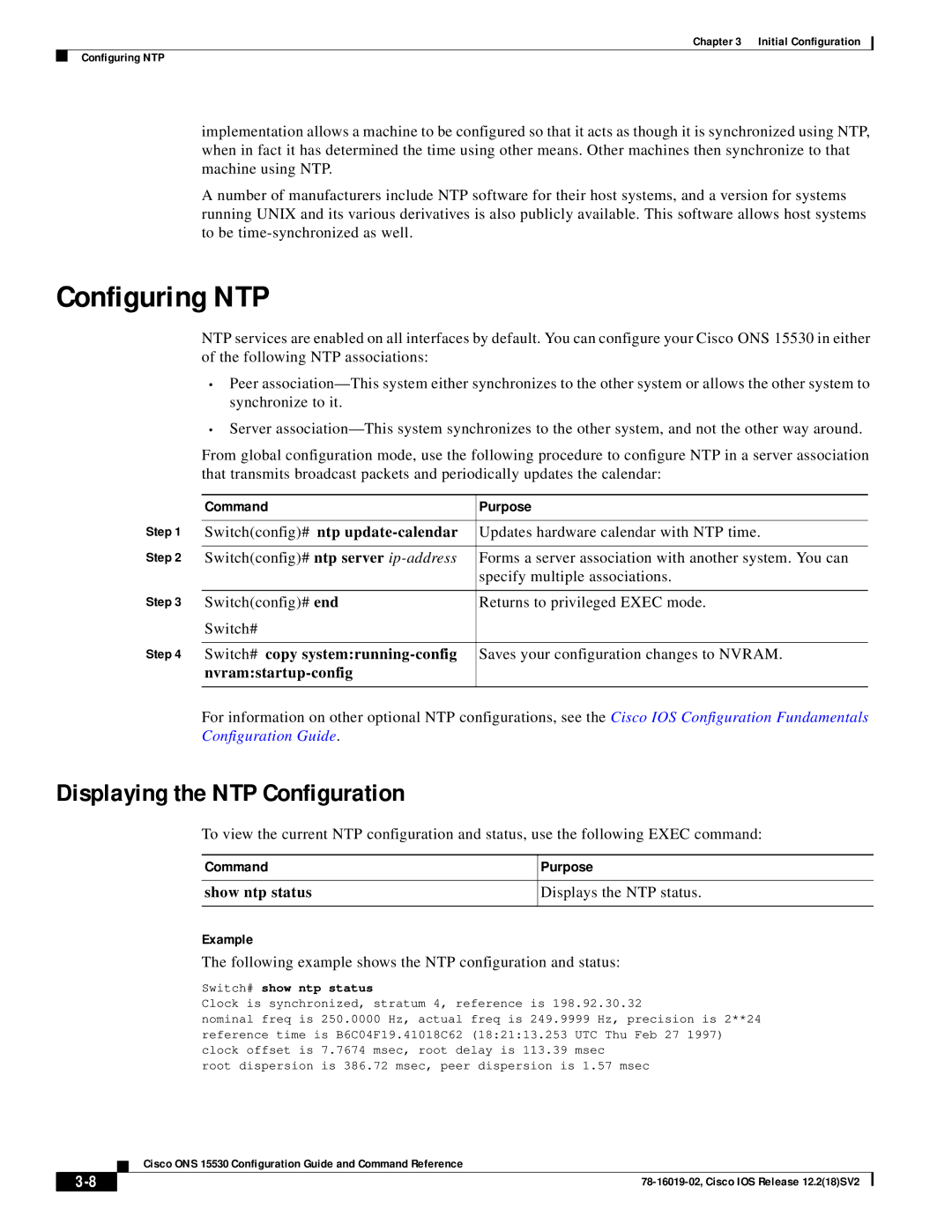
Chapter 3 Initial Configuration
Configuring NTP
implementation allows a machine to be configured so that it acts as though it is synchronized using NTP, when in fact it has determined the time using other means. Other machines then synchronize to that machine using NTP.
A number of manufacturers include NTP software for their host systems, and a version for systems running UNIX and its various derivatives is also publicly available. This software allows host systems to be
Configuring NTP
NTP services are enabled on all interfaces by default. You can configure your Cisco ONS 15530 in either of the following NTP associations:
•Peer
•Server
From global configuration mode, use the following procedure to configure NTP in a server association that transmits broadcast packets and periodically updates the calendar:
| Command | Purpose |
Step 1 |
|
|
Switch(config)# ntp | Updates hardware calendar with NTP time. | |
Step 2 |
|
|
Switch(config)# ntp server | Forms a server association with another system. You can | |
|
| specify multiple associations. |
Step 3 |
|
|
Switch(config)# end | Returns to privileged EXEC mode. | |
| Switch# |
|
Step 4 |
|
|
Switch# copy | Saves your configuration changes to NVRAM. | |
|
| |
|
|
|
For information on other optional NTP configurations, see the Cisco IOS Configuration Fundamentals Configuration Guide.
Displaying the NTP Configuration
To view the current NTP configuration and status, use the following EXEC command:
Command
show ntp status
Example
Purpose
Displays the NTP status.
The following example shows the NTP configuration and status:
Switch# show ntp status
Clock is synchronized, stratum 4, reference is 198.92.30.32
nominal freq is 250.0000 Hz, actual freq is 249.9999 Hz, precision is 2**24 reference time is B6C04F19.41018C62 (18:21:13.253 UTC Thu Feb 27 1997) clock offset is 7.7674 msec, root delay is 113.39 msec
root dispersion is 386.72 msec, peer dispersion is 1.57 msec
| Cisco ONS 15530 Configuration Guide and Command Reference |
